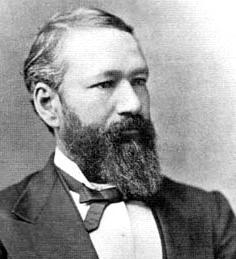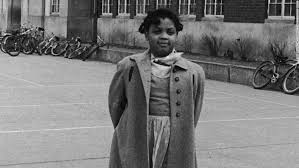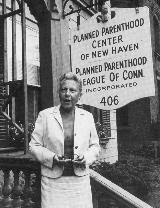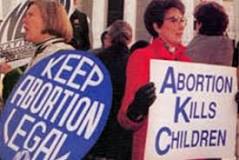 Plessy v. Ferguson (1896) Plessy v. Ferguson (1896)
 Brown v. Board of Education (1954) Brown v. Board of Education (1954)
 Bakke v. U. of California Regents (1978) Bakke v. U. of California Regents (1978)
 Griswold v. Connecticut (1965) Griswold v. Connecticut (1965)
 Roe v. Wade (1974) Roe v. Wade (1974)
 Obergerfell v. Hodges (2015) Obergerfell v. Hodges (2015)
_______________________________________________________________________________
WEEK 1 - Plessy, Brown, and Bakke
Day 1 (January 19)
AIM Explain the Civil Rights Impact of the 14th Amendment
AGENDA
1. LIVE TEAMS MEETING @ 12:30) - Lecture -citizenship, privileges and immunities, due process and equal protection clauses Of the 14th Amendment
2. How to write a legal brief
3. 14th Amendment - Section 1 - assignment in Schoology
ASSESSMENT - I can explain how the clauses of the 14th Amendment expanded civil rights.
________________________________________________________________________________
Day 2 (January 21)
AIM Explain how the 14th Amendment's Equal Protection clause has been reinterpreted from 1896 to 1978 citing Supreme Court ruling Plessy, Browne, and Bakke.
AGENDA
1. EdPuzzle video with multiple choice questions - Plessy v Ferguson (1896)
2. Plessy v Ferguson and legal brief matching assignment in Schoology
3. Plessy v Ferguson assignment in Schoology
ASSESSMENT
I can list the 4 parts of a Legal Brief, and Write a Legal Brief on Plessy v Ferguson (1896)
________________________________________________________________________________
Day 3 (January 26)
AIM Explain how the 14th Amendment's Equal Protection clause has been reinterpreted from 1896 to 1978 citing Supreme Court ruling Plessy, Brown, and Bakke.
AGENDA
1. EdPuzzle video - Brown v. Board of Education (1954)
2. Brown v Board of Education (1954) - Write a legal brief - assignment in Schoology
Include
a. Name of case and year
b. Facts of case
c. Constitutional Question
d. Outcome of case, precedent
e. Dissenting/concurring opinions. Unanimous decision
ASSESSMENT
I can write a Legal Brief on Brown v Board of Education (1954)
________________________________________________________________________________
Day 4 (January 28)
AIM Explain how the 14th Amendment's Equal Protection clause has been reinterpreted from 1896 to 1978 citing Supreme Court ruling Plessy, Brown, and Bakke.
AGENDA
1. EdPuzzle video - Bakke v University of Southern California Regents (1978)
2. Regents of California v Bakke (1978) Legal Brief - assignment in Schoology
Include in the assignment...
a. Name of case and year
b. Facts of case
c. Constitutional Question
d. Outcome of Case, Precedent set, if any
e. Dissenting/concurring opinions. Explain both.
2. Regents of California v Bakke (1978) Legal Brief - assignment in Schoology
ASSESSMENT
I can write a Legal Brief on Bakke v University of California Regents (1978)
________________________________________________________________________________
Day 5 (February 2)
AIM Assess content knowledge of Plessy, Brown, and Bakke
AGENDA
1. Live Teams Review for test @ 12:30
2. Multiple-Choice Quiz
ASSESSMENT
I can identify the name, year, background, constitutional question and outcome of the cases Plessy, Brown, and Bakke.
________________________________________________________________________________
WEEK 2 - Griswold, Roe, Obergefell, and Mapp
Day 6 (February 4)
AIM Explain how the 14th Amendment's due process has been interpreted by the Supreme Court to protect one's right to privacy
AGENDA
1. EdPuzzle Video Griswold v CT (1965)
Review
a. Name of case and year
b. Facts of case
c. Constitutional Question
d. Outcome, Precedent set, if any
e. Dissenting/concurring opinions. Explain both.
ASSESSMENT I can explain how the Griswold case interpreted by the Supreme Court protect one's right to make personal life choices.
________________________________________________________________________________
Day 7 (February 9)
AIM Explain how the 14th Amendment's due process has been interpreted by the Supreme Court to protect one's right to privacy
AGENDA
1. Live Teams lecture - cases involving the right to privacy
2. EdPuzzle video - Rove v Wade (1973)
3. Griswold v CT (1965) and Roe v Wade (1973) Assignment in Schoology
ASSESSMENT I can explain how the Roe v Wade case interpreted by the Supreme Court protect one's right to make personal life choices choices.
_______________________________________________________________
Day 8 (February 11)
AIM Explain how the 14th Amendment's due process has been interpreted by the Supreme Court to protect one's right to privacy
AGENDA
1. EdPuzzle video - Obergerfell v Hodges (2015)
2. Type 2 Quiz on Plessy, Brown, Bakke, Griswold, Roe, and Obergerfell
ASSESSMENT I can explain how the Lawrence case interpreted by the Supreme Court protect one's right to make personal choices.
_______________________________________________________________
Day 9 (February 16)
AIM Explain how the 14th Amendment's due process has been interpreted by the Supreme Court to protect one's right to privacy
AGENDA
1. LIVE TEAMS Kahoot @12:30 - 14th Amendment Supreme Court cases.
2. Study guide for Multiple-choice test on Court Cases involving the 14th Amendment's equal protection and due process clauses located in Schoology.
ASSESSMENT I can explain how the Obergerfell case interpreted by the Supreme Court protect one's right to make personal choices.
_______________________________________________________________
Day 10 (February 18)
AIM Explain how the 14th Amendment's due process has been interpreted by the Supreme Court to protect one's right to privacy
AGENDA
TEST - Supreme Court cases involving the 14th Amendments due process and equal protection clauses.
ASSESSMENT I can identify and explain how Supreme Court rulings have been expanded over the years to protect one's right to make personal choices.
_______________________________________________________________
Ohio Learning Standards
7. Basic Principles of the Constitution - Constitutional government in the United States has changed over time as a result of amendments to the U.S. Constitution, Supreme Court decisions, legislation and informal practices.
16. Role of the People - In the United States, people have rights that protect them from undue governmental interference that also requires respect for the rights of others.
17. Role of the People - Historically, the United States has struggled with majority rule and the extension of minority rights. The government has increasingly extended civil rights to marginalized groups.
|
|